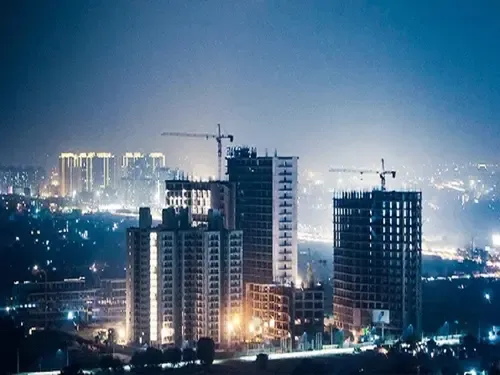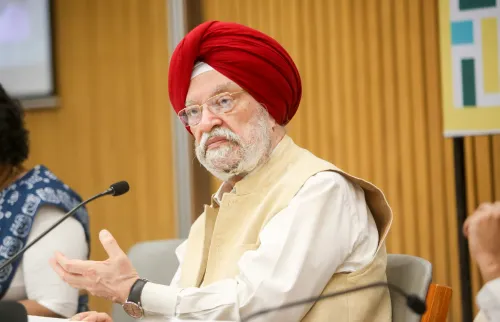Indian Real Estate Sector Set to Tackle Quality Housing and Adapt to Changing Demands in 2025

Mumbai, Dec 29 (NationPress) As the Indian real estate sector undergoes significant shifts prompted by changing consumer needs, technological innovations, and government efforts, it is vital for developers, policymakers, and stakeholders to work together to meet the rising demand for quality housing, sustainable practices, and advanced technology in 2025, as per industry experts.
Prashant Sharma, President of the Maharashtra National Real Estate Development Council (NAREDCO), stated that affordable housing is a critical aspect of India's real estate strategy, with ongoing government support for initiatives such as PMAY (Pradhan Mantri Awas Yojana) propelling growth in this area.
“In 2024, we made notable strides in enhancing homeownership accessibility for middle and lower-income families. However, addressing the twin challenges of affordability and quality will necessitate innovative approaches in 2025. Developers need to embrace cost-effective construction methods and collaborate with policymakers to close the demand-supply gap,” he remarked.
Buildings that prioritize sustainability are rapidly becoming the norm. Sharma noted that in 2024, there was a marked transition toward eco-friendly practices, as developers adopted green construction technologies, energy-efficient designs, and sustainable materials.
“Homebuyers and investors are increasingly drawn to projects that provide long-term environmental and economic benefits. This trend is set to strengthen in 2025, as sustainability shifts from a differentiator to a fundamental requirement in the industry,” he observed.
Rapid urbanization and infrastructure enhancements have played a crucial role in shaping the real estate landscape this year. Projects like metro expansions, expressways, and smart cities have significantly increased the demand for residential and commercial spaces in both metropolitan and suburban regions.
Experts predict that this momentum will carry on into 2025, with developers concentrating on constructing integrated townships and mixed-use developments that address the needs of a growing urban populace.
India's real estate market has also become an attractive venue for foreign investment, supported by regulatory reforms and a rising middle class.
According to a Knight Frank India report, private equity (PE) investments in the Indian real estate sector reached $4.2 billion in 2024, reflecting a 32 percent year-on-year growth amid high demand in the warehousing sector.
In 2024, there was a surge in interest from institutional investors and sovereign wealth funds, particularly focusing on commercial and warehousing spaces.
Looking forward, maintaining transparency, enhancing the ease of doing business, and ensuring consistent returns will be essential for sustaining this growth and further boosting global investor confidence, according to industry specialists.
Shishir Baijal, Chairman and Managing Director of Knight Frank India, mentioned that India has witnessed a surge in investments, especially over the last decade, fueled by economic stability and steady growth.
As these trends develop, they present both challenges and opportunities for the real estate sector, requiring industry leaders to adapt, innovate, and stay aligned with the evolving market dynamics in 2025.










